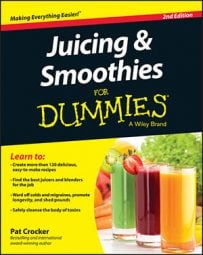You start to really enjoy the taste, the benefits, the energy, and the vitality that juicing can give and you think, "Why not save time and effort by making a day's (or a few days') worth of juice?" It's a great idea — and you're not the first person to have it.
The only problem is, vitamins B2, B6, E, and, to a degree, C are all sensitive to light. If they're exposed to light when the produce is stored, during juicing, or during the storage of the juice, those vitamins will be lost.
The best possible practice is to drink your juice as soon as possible after it's juiced. That means it isn't a good idea to juice hours before a meal or the night before. Now, if this will be the one thing that will enable you to enjoy fresh, raw, handmade juice, then go for it because any loss of nutrients won't stack up to the incredible benefits you'll still enjoy by consuming fresh juice.
If you really want to store freshly juiced produce, here are some tips to ensure that your precious juice doesn't lose nutrients during storage:
Store juice in a glass jar with a tight-fitting lid that doesn't allow for a lot of air. The goal is less than 1/2 inch of air space between the juice and the lid.
If possible, the glass jar should be dark to filter out light and UV rays.
Refrigerate fresh juice immediately and keep chilled until ready to use.
Use within 24 hours. Bacteria can grow in a liquid like water or juice without preservatives very quickly, even if it's stored in the refrigerator.

